Dordrecht – Dordracum
Detail
Date of first edition: 1575
Date of this edition: ca. 1590
Dimensions (not including margins): 31 x 49 cm
Dimensions (including margins): 42 x 53,5 cm
Condition: Very good. Copper engraving printed on hard paper. Centre fold as published. Slightly tone-aged.
Condition rating: A+
Verso: text in Latin
References: Van der Krogt IV, 2,1, 113; Taschen, Braun and Hogenberg, p. 156.
From: Civitates Orbis Terrarum, … Part 2: De Praecipuis, Totius Universi Urbibus, Liber Secundus. Van der Krogt IV, 2,1, 41:1-3, page 24
In stock
Dordrecht commented by Braun
Original title: Dordracum, vulgo Dortt.
Taschen on Dordrecht
Dordrecht is shown here as a view over the Merwede. The city is famed as Holland’s oldest city, because it was granted a municipal charter as far as 1220 and was uncontested as the most important trade city and port of the province from the 13th to the 16th century. In November of 1421 a storm surge flooded Holland. Over 100,000 people died and the floods left an indelible mark on the area around Dordrecht. Behind Dordrecht the water did not flow away, thus the city became an island. The Grote Kerk, built in the Brabant-Gothic style, rises above the city. Another architectural jewel of the city is the Gothic town hall (18). In the building captioned Het groote hoof (13) a meeting took place in July 1572 of representatives of most of the Dutch towns, in order to declare William of Orange as their leader and their independence from Spain: this was the beginning of the Dutch Revolt.
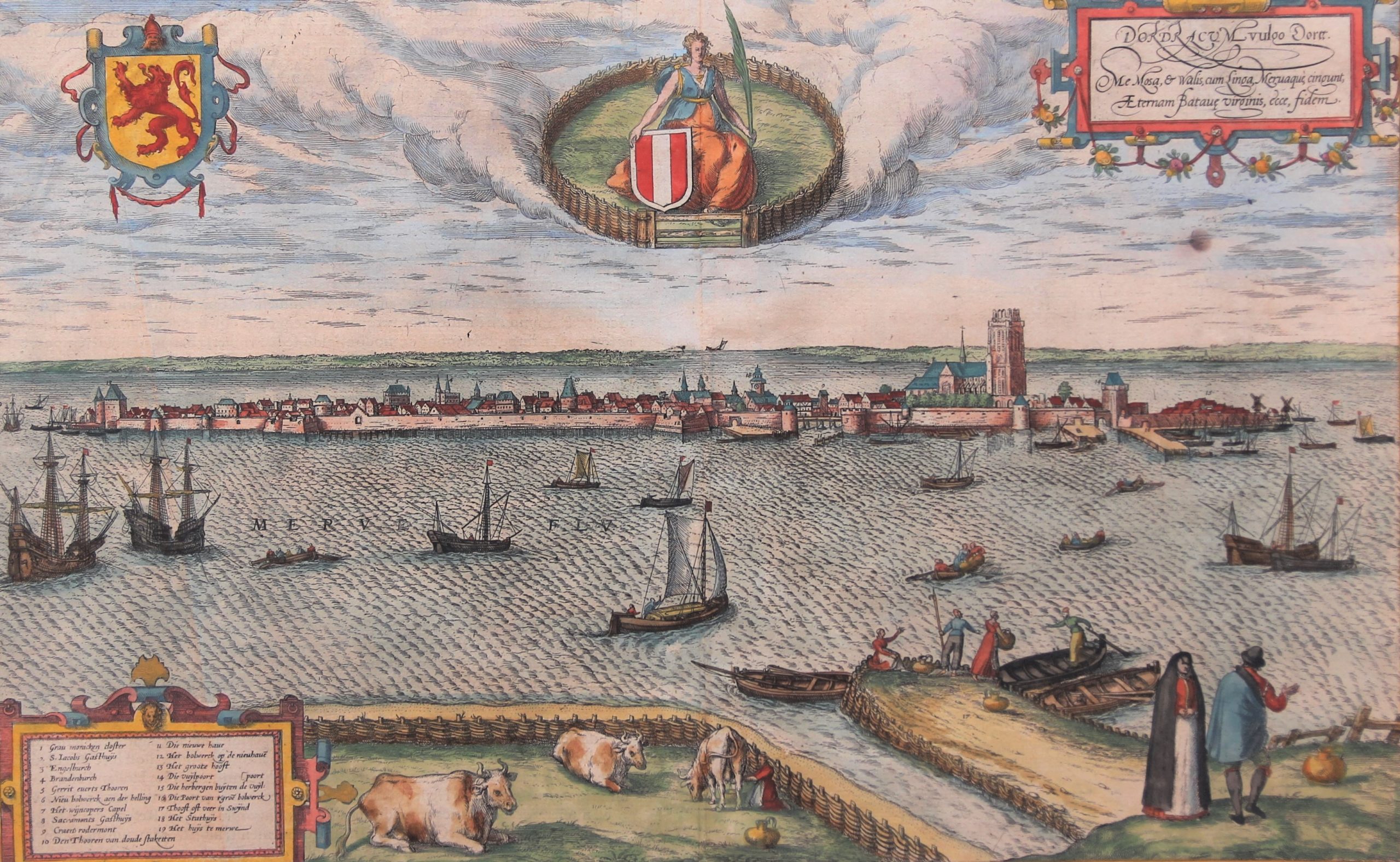

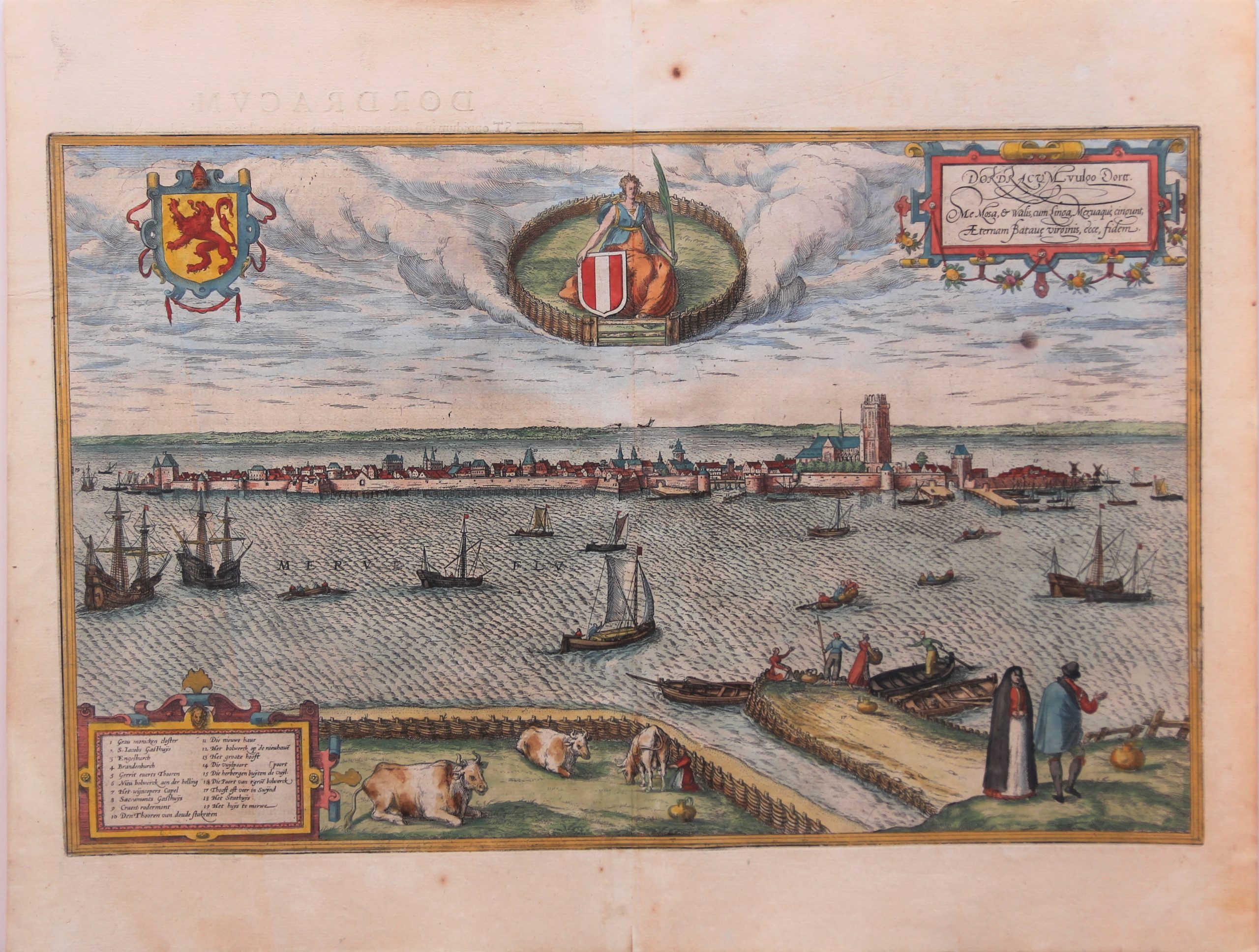
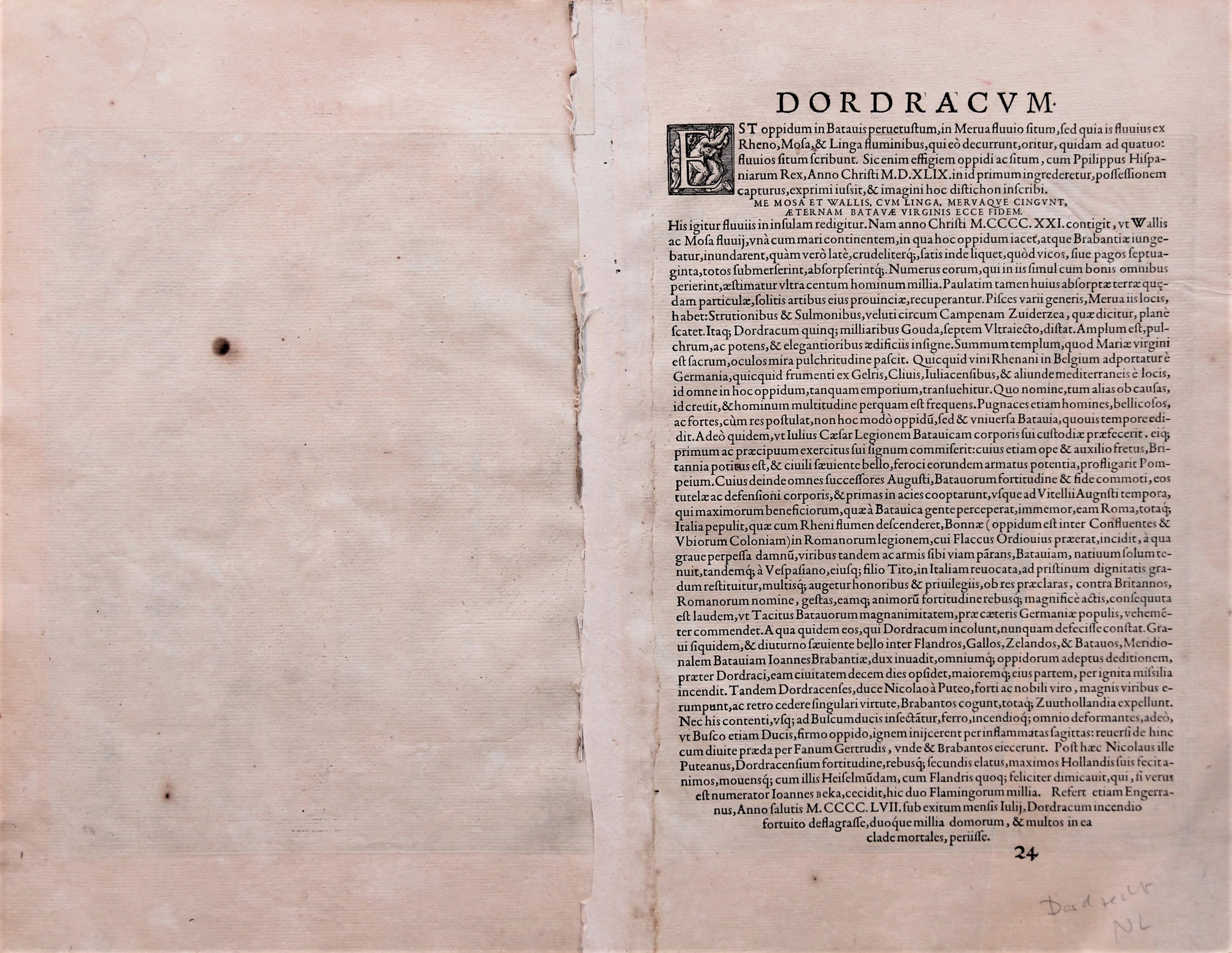
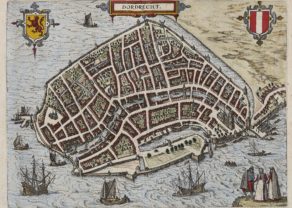
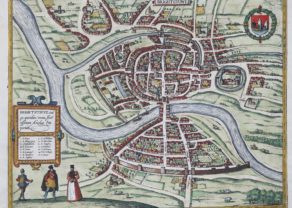
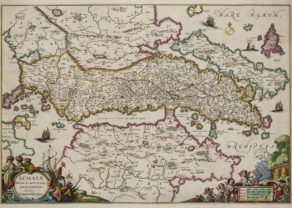
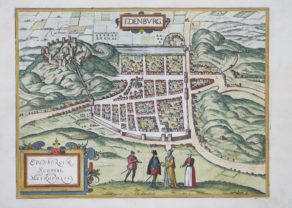
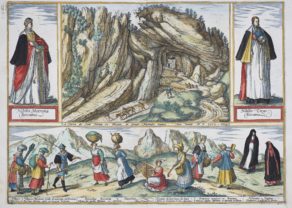
Union of Dordrecht
In 1572, four years into the Dutch Revolt, representatives of all the cities of Holland, with the exception of Amsterdam, gathered in Dordrecht to hold the Eerste Vrije Statenvergadering (“First Assembly of the Free States”), also known as the Unie van Dordrecht (“Union of Dordrecht”). This secret meeting, called by the city of Dordrecht, was a rebellious act since only King Philip II or his stadhouder or stadtholder, at that time the Duke of Alva, were allowed to call a meeting of the States of Holland.
During the meeting, the organization and financing of the rebellion against the Spanish occupation was discussed, Phillip II was unanimously denounced, and William of Orange was chosen as the rightful stadtholder and recognized as the official leader of the revolt. Orange, represented at the meeting by his assistant Philips of Marnix, was promised financial support of his struggle against the Spanish and at his own request, freedom of religion was declared in all of Holland.